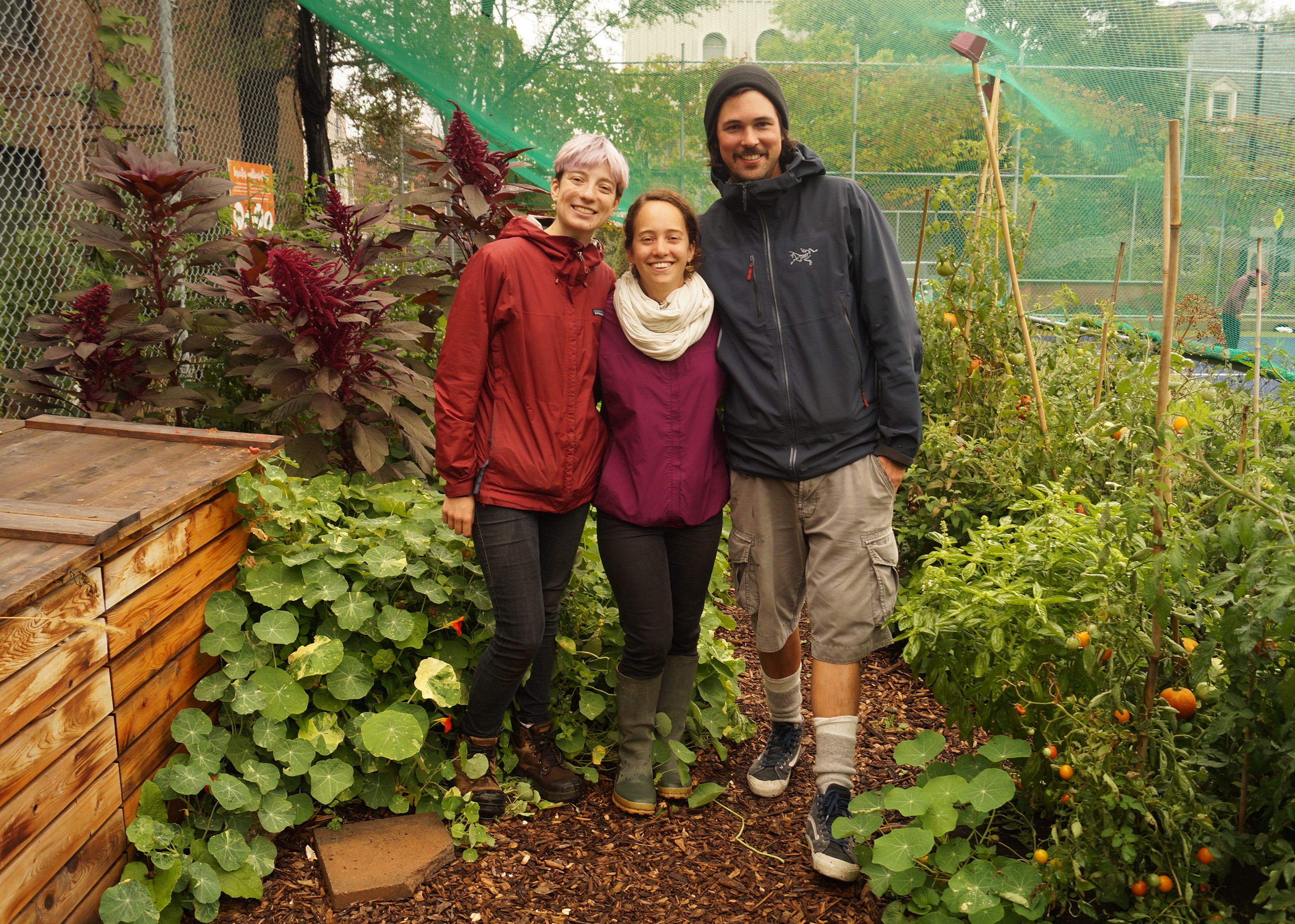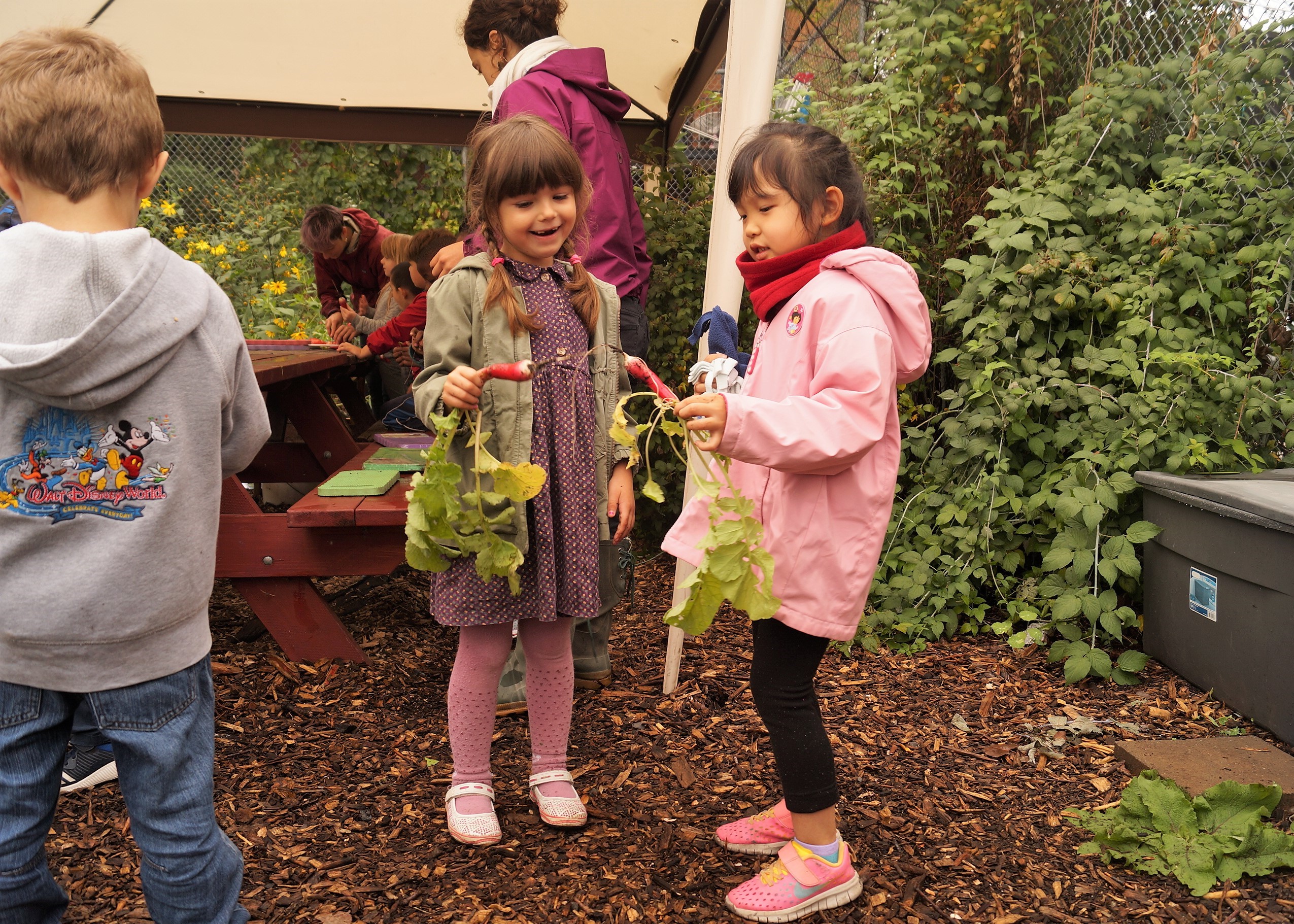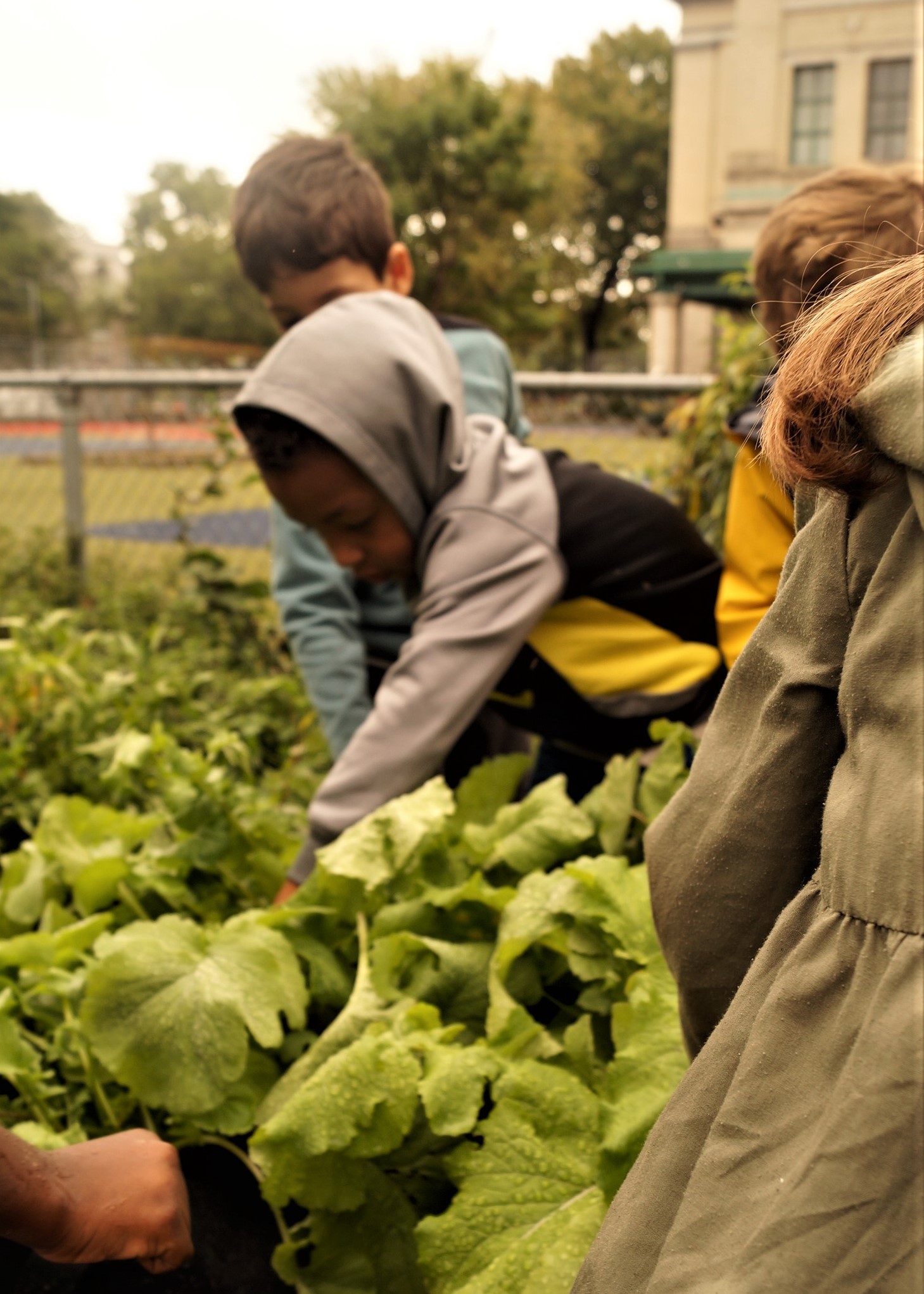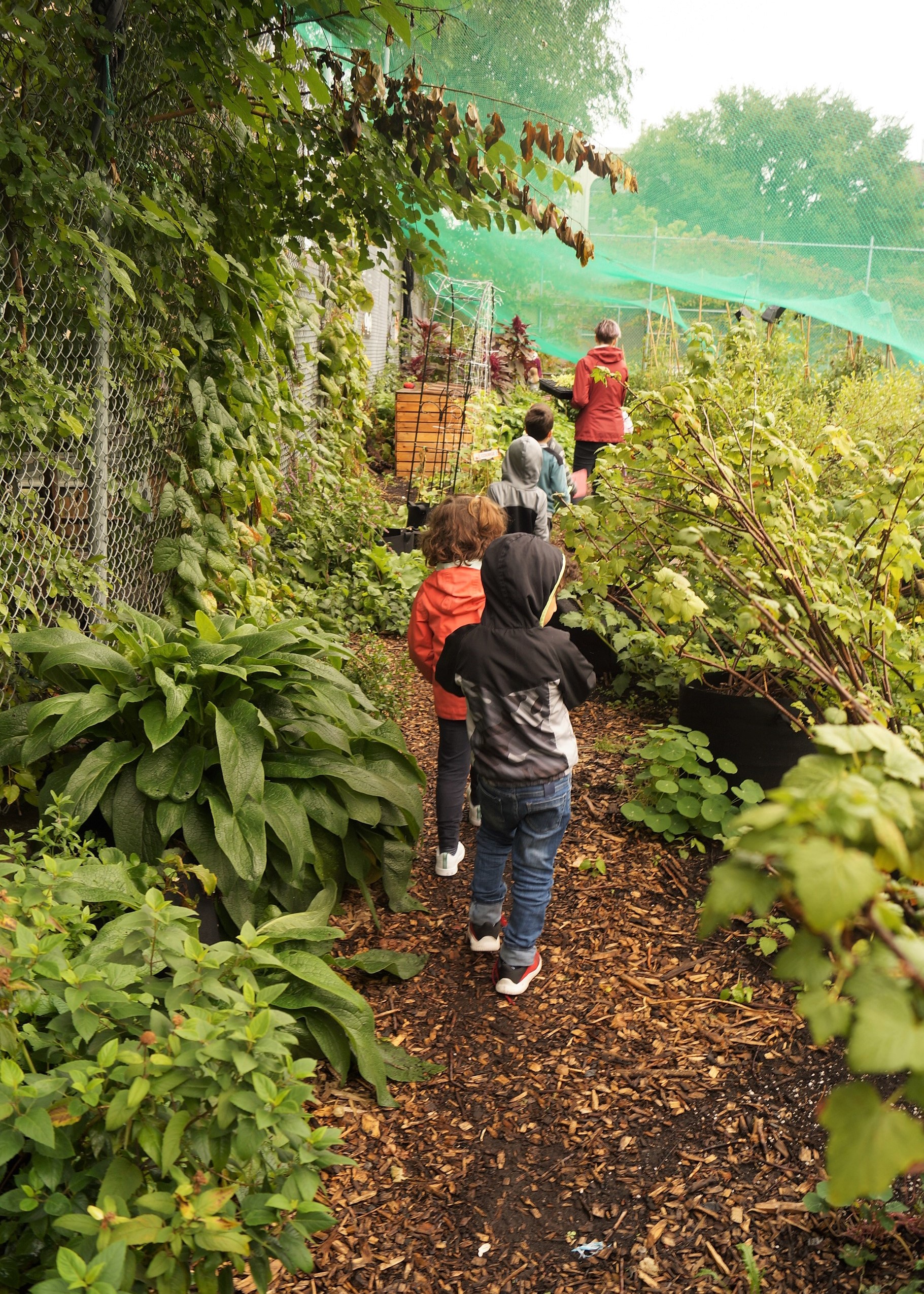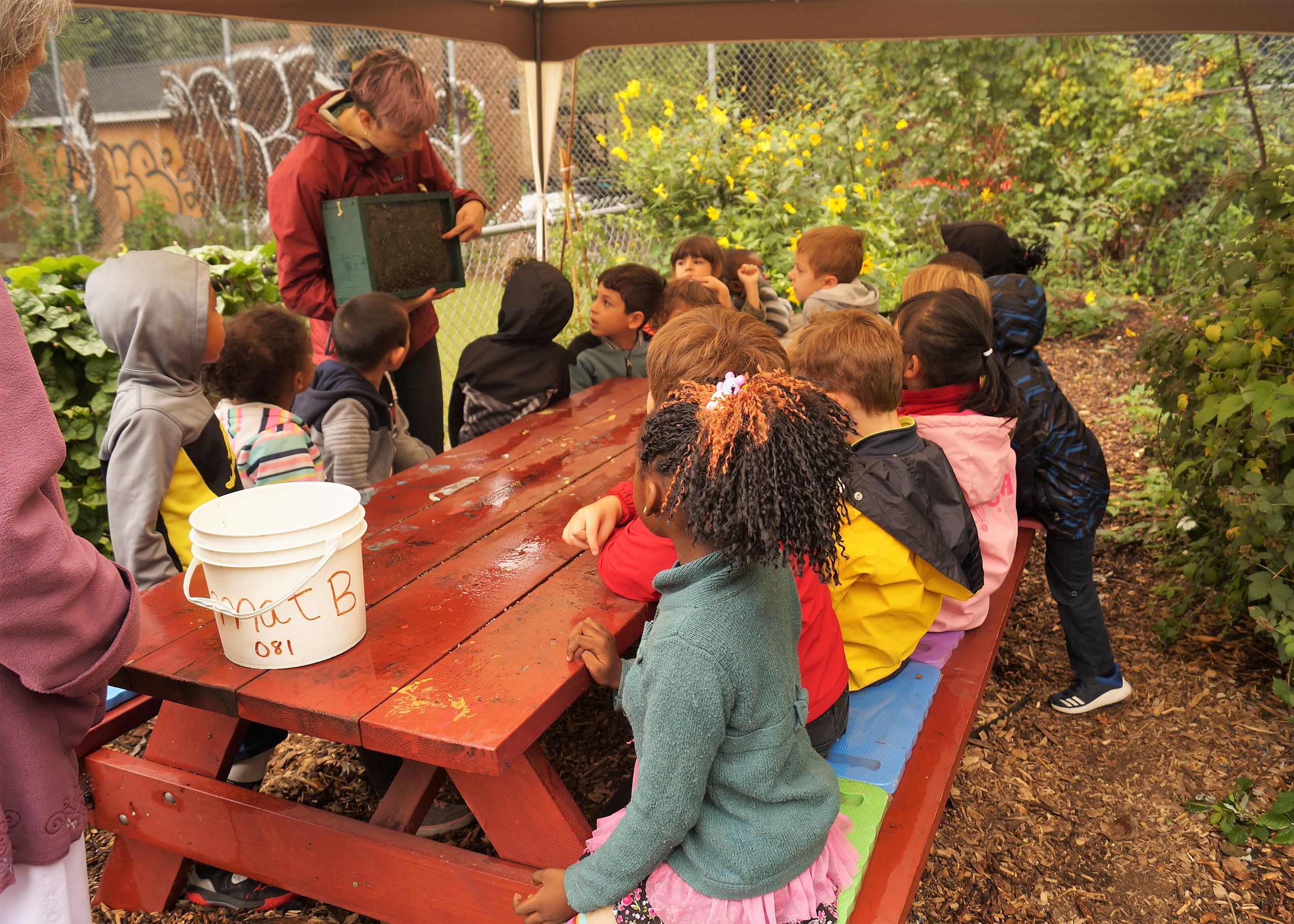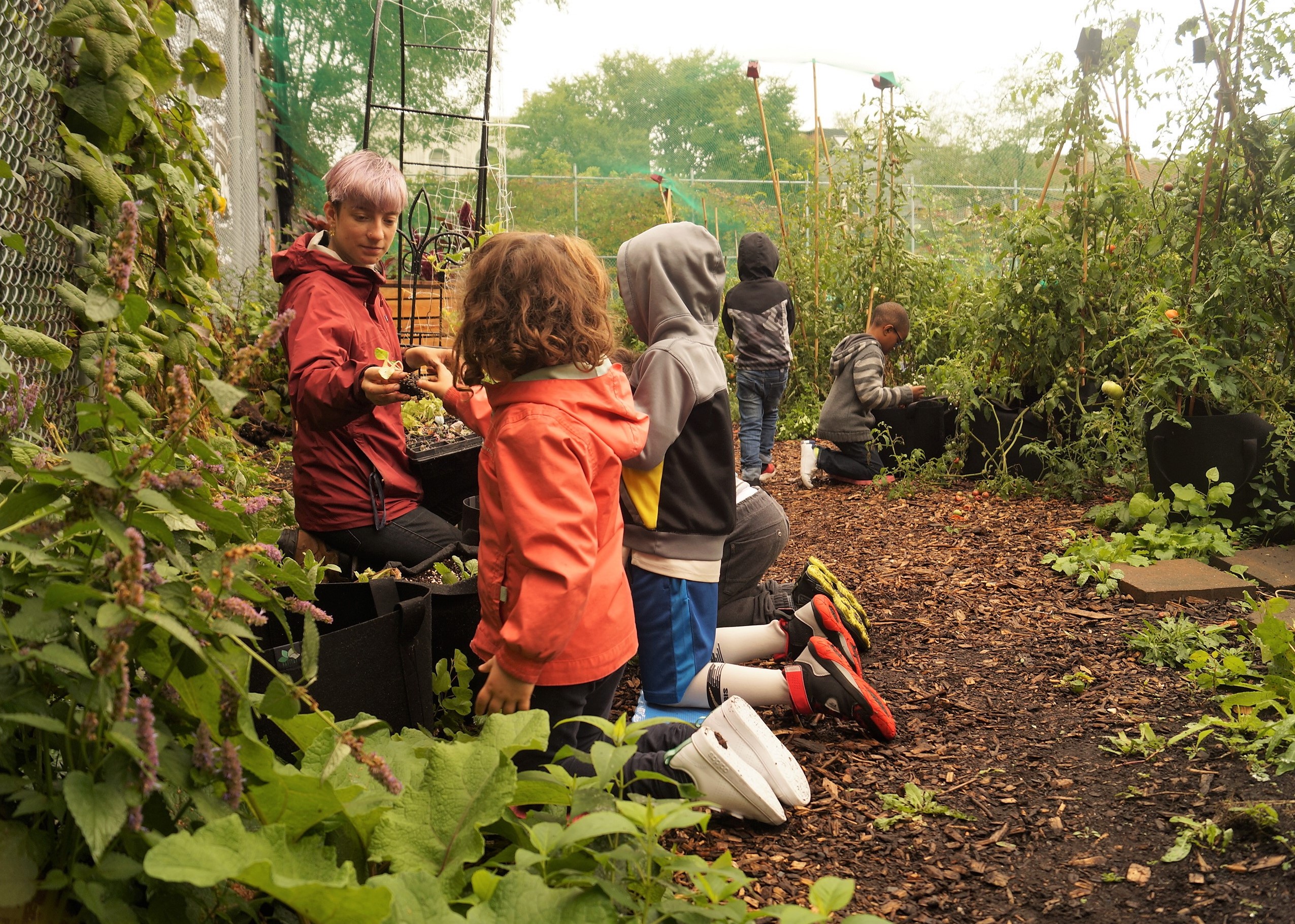
Sentier urbain’s vegetable garden: bumper crops of hope
For 25 years, Sentier urbain has been successful in raising environmental awareness, fighting school dropout rates and providing access to healthy food in the middle of the Montreal Centre-Sud food desert. An inspiring and uplifting project that the Port is proud to support.
At the core of Centre-Sud, there is a small vegetable garden nestled in the yard of Garneau Elementary School. Managed by the non-profit community organization Sentier urbain, it’s 2,000 square feet of greenery in the middle of a concrete jungle, where much more than plants flourish.
An appetite for learning
Behind the urban agricultural project, 300 children a year come to discover, taste and learn differently than through books.
Ms. Diane’s kindergarten group arrives at the activity, all in a line, chanting “Potager! Potager! Potager! Potager! (Vegetable garden!) Like every group at the school, they have the good fortune to attend a workshop with Fanie Lauzon, the horticulturalist and vegetable garden program facilitator. For 30 minutes to an hour, depending on the group and type of activity, these workshops provide an opportunity to learn a little about botany and try out handling, planting, harvesting or cooking activities.
“I always start with a bit of theory,” said Fanie, whose background is in horticulture and education. She discusses the role of roots, germination, insects, and other aspects. Meanwhile, gathered around a table, the children have attentive looks and lots of small questions: “What are the nets for? Why do squirrels eat tomatoes? What’s that called?”
Each workshop whets an appetite for teaching, as well. “I try to build workshops related to the school program and to create interaction between their courses and the land.” New vocabulary words, natural science concepts, DIY ideas to implement, geometry problems adapted to planting seeds… Teachers leave with lots of ideas and avenues to propose new educational content.
For 25 years, Sentier urbain has sought to “inspire innovative projects to reinvent school,” said François Forcier, Deputy Director of the organization, which has about 40 projects in Montreal, including Jardins Gamelin and Notre Quartier Nourricier Centre-Sud. “Garneau School’s vegetable garden is one of our most beautiful. It’s a big advantage to be able to plant in open ground.”
Towards better eating habits
Second stage: planting. Each child spends about ten minutes carefully planting their lettuce in the ground.
Are they always careful about it? According to Fanie, “Yes!” In fact, the rowdiest in the class are often the most attentive: “It’s like an escape. They’re happy to be outside. They can move, explore, discover. It’s not an activity they’re reluctant to do.”
Then it’s time to pick. Head for the radishes! “We grab them here and pull them up gently…” And everyone gets to go home with their haul. “We make sure they bring home as much as possible, even if these harvests are pretty small, like a bouquet of herbs. As soon as they can eat it, they’re happy. It’s also an opportunity to create a bond with home, and why not share fresh local produce with the whole family?
This mission is all the more relevant given that the neighbourhood is considered a food desert: 73% of food stores are convenience stores, 50% of high school students rely on the food measures in place (snacks and meals provided by the school), and in 41.9% of families, neither parent works full-time. ‘A few years ago, I asked my students to raise their hands if they knew what a radish is. Only two students in the whole class did,’ said Ms. Diane.
Here, they discover vegetables of all colours and shapes. In addition to celery, carrots and lettuce, there are half a dozen varieties of tomatoes, ground cherries, blue raspberries, Korean mint and ice plants, and even Malabar spinach, which ‘tastes like spinach but with a viscous texture,’ according to François. A guaranteed hit with kids!
In partnership with La Relance, which has kitchen facilities, they can also learn about food processing: herb tea bags, spring rolls, salted herb pots, kale chips and more.
A neighbourhood project
Over the years, this vegetable garden has become a real neighbourhood project. That’s because throughout the summer, while the school is closed, day camps, early childhood centres (CPEs) and even intergenerational projects involving senior citizens taking a break, all come enjoy Fanie’s workshops. Result: most of the residents in the neighbourhood have already become involved there.
Before leaving, we taste a small sample of tomatoes from the garden, and surprise: ‘They don’t taste the same as usual!’ said François, who enjoys watching the children hide a few cherry tomatoes in their pockets, while others ask for a second serving.
As the children depart with a smile on their faces, Fanie is already starting to set up for the next workshop. ‘I’m lucky to be working on such a wonderful project. We see the impact of what we do!’

